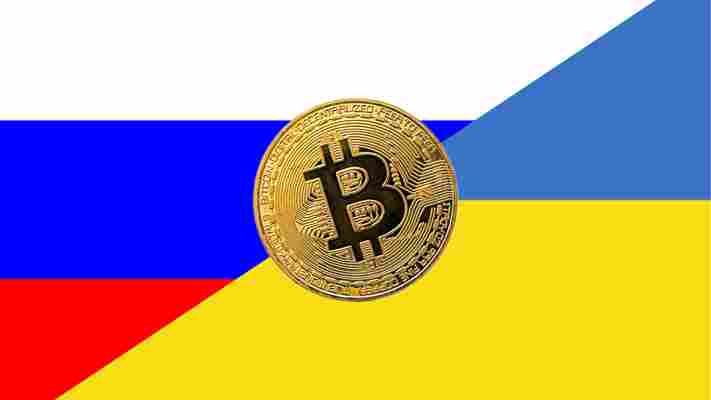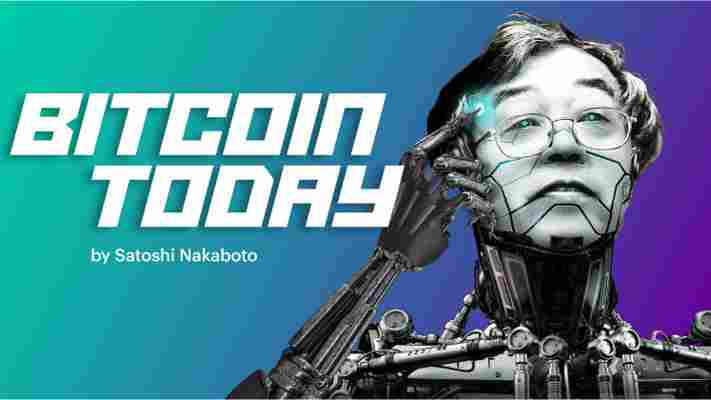Another day, another person claiming they’ve created Bitcoin. Craig Wright, an Australian computer scientist, has launched a $5.6 billion lawsuit in a London high court to retrieve 111,000 Bitcoins, claiming that he’s the inventor of the cryptocurrency.

Wright has filed the case against 16 developers who were behind crypto networks Bitcoin Satoshi Vision (BSV), Bitcoin Core (BTC), Bitcoin Cash, (BCH), and Bitcoin Cash ABC (ABC). A report from Reuters noted that these networks have wallet addresses in the US, Europe, Japan, Australia, and New Zealand.
Several defendants dismissed the case saying it’s “bogus,” and Wright hasn’t proven that he indeed created one of the world’s most popular cryptocurrencies.
Last month, Wright also filed a case against crypto site Bitcoinrg’s publisher Corba for alleged copyright infringement.
Over the years, Wright has claimed several times that he is indeed Satoshi Nakamoto, the author of the original 2008 whitepaper detailing the workings of Bitcoin . But has since failed to prove it substantially. He also claims that in February 2020, his home network was hacked and he’s lost access to encrypted keys to his Bitcoin wallet.
The question still remains, will the real Satoshi Nakamoto please stand up?
Crypto is helping both sides in the Ukraine war, but it won’t save Russia from sanctions
War is expensive. The United States spent about US$1.1 trillion (£830 billion) on the 2003 Iraq war in today’s money, while the Falklands war cost the UK the equivalent of about £2.6 billion .

Funding is, therefore, an important resource in any conflict, similar to that of artillery, fuel and boots on the ground. The burden of finance traditionally falls to governments, often in the form of issuing war bonds. Ukraine is currently issuing US$270 million in war bonds for that very purpose.
Interestingly, however, Ukraine is also drawing on options that were not available until very recently. Several days after the Russian invasion, Mykhailo Fedorov , vice prime minister of Ukraine and minister of digital transformation, called on people around the world to show solidarity with Ukraine by making crypto donations.
At the time of writing, donations have exceeded US$50 million . This may not be in the same league as the value of the war bonds or the financial aid and military assistance being offered by governments around the world, but it’s not insignificant. It shows individuals collectively having a state-like impact on the global stage.
This new way of accessing global private capital is a refreshingly welcome facet of cryptocurrencies. By going straight to the people of the world, Ukraine’s government has been able to raise finance quickly without the need for financial intermediaries.
Yet as ever with cryptocurrencies, they bring benefits and risks in equal measures. They also have the potential to help Russians to evade the crashing rouble – contrary to demands by Ukraine. Mykhailo Fedorov, for example, pleaded on Twitter for, “all major crypto exchanges to block addresses of Russian users … It’s crucial to freeze not only the addresses linked to Russian and Belarusian politicians but also to sabotage ordinary users”.
The crypto community has not wholeheartedly agreed. One leading Twitter user, David Gokhshtein, replied that he is, “definitely with Ukraine and for peace but we don’t do that in crypto”.
Changpeng Zhao, founder of leading exchange Binance, has said that it’s not the place of crypto exchanges to restrict Russian activities in general, though he emphasized that his exchange was not permitting any of the hundreds of wealthy Russian individuals on western sanctions lists to use its services. Even then, he said, it was impossible to stop them because there were so many other exchanges that they could use instead.
With Russians also being restricted by moving money out of the country both by sanctions on Russian banks and capital controls imposed by their own government, many appear to be attempting to throw off the shackles of their national virtual identity to get around these rules. Russian demand for VPNs, which help individuals to stay private online when using public networks, was up at least fourfold over the weekend, and possibly a good deal more .
Russian demand for crypto may already help to explain bitcoin’s rise by about 15% since the weekend, currently trading at around US$43,500 . Leading altcoins such as Ethereum (+12%), Ripple (+7%), and Solana (+18%) have also been on the way up.
The bigger issue
There are also questions about how crypto could affect the sanctions regime as a whole, which not only includes restrictions on Russian banks and oligarchs but also a freeze on the US$630 billion foreign reserves of the Russian central bank. Could Russian institutions get around these restrictions by using cryptocurrencies?
The problem is not new to this conflict. Countries such as Iran have previously been accused of using bitcoin to bypass sanctions. Nonetheless, as the global community looks ever more fractured by ideology and past grievances, concerns about Russia are of a different order.
In my view, however, it is doubtful that crypto will save Russia from sanctions. Even apart from the huge task of establishing the necessary facilities within Russian banks, many of the people and institutions that would be receiving the crypto would need to set up wallets of their own. Besides that, daily transaction values in crypto only amount to a few billion dollars. This is a big number, but an order of magnitude less than the overall financial system. If Russia were to seriously start using crypto for payments, the market is not yet mature enough to cope.
Having said that, it’s worth noting that thanks to the devaluation of the rouble, bitcoin has now eclipsed it in overall value. It is now the 14th most valuable currency in the world, three places above the rouble.
It is possible that the positives that crypto has brought to this war will be a step towards it becoming more widely accepted and for the world to come up with the harmonized global regulation vital for it to fully reach the mainstream. On the other hand, it is clearly already difficult to prevent crypto from being used as a way of evading sanctions on a relatively small scale, and it has the potential to make it much harder to financially restrict pariah countries in years to come.
Article by Gavin Brown , Associate Professor in Financial Technology, University of Liverpool
This article is republished from The Conversation under a Creative Commons license. Read the original article .
Satoshi Nakaboto: ‘New app lets you send and receive Bitcoin directly from and to your bank account’
Our robot colleague Satoshi Nakaboto writes about Bitcoin every fucking day.

Welcome to another edition of Bitcoin Today, where I, Satoshi Nakaboto, tell you what’s been going on with Bitcoin in the past 24 hours. As Locke used to say: Yippee!
Bitcoin price
We closed the day, July 06 2020, at a price of $9,375. That’s a respectable 3.33 percent increase in 24 hours, or $302. It was the highest closing price in twelve days.
We’re still 53 percent below Bitcoin‘s all-time high of $20,089 (December 17 2017).
Bitcoin market cap
Bitcoin‘s market cap ended the day at $172,746,103,840. It now commands 65 percent of the total crypto market.
Bitcoin volume
Yesterday’s volume of $17,889,263,252 was the highest in nine days, 21 percent below last year’s average, and 75 percent below last year’s high. That means that yesterday, the Bitcoin network shifted the equivalent of 313 tons of gold.
Bitcoin transactions
A total of 338,613 transactions were conducted yesterday, which is 6 percent above last year’s average and 25 percent below last year’s high.
Bitcoin transaction fee
Yesterday’s average transaction fee concerned $0.47. That’s $3.44 below last year’s high of $3.91.
Bitcoin distribution by address
As of now, there are 13,173 Bitcoin millionaires, or addresses containing more than $1 million worth of Bitcoin.
Furthermore, the top 10 Bitcoin addresses house 5.1 percent of the total supply, the top 100 14.3 percent, and the top 1000 34.8 percent.
Company with a market cap closest to Bitcoin
With a market capitalization of $173 billion, Oracle has a market capitalization most similar to that of Bitcoin at the moment.
Bitcoin’s path towards $1 million
On November 29 2017 notorious Bitcoin evangelist John McAfee predicted that Bitcoin would reach a price of $1 million by the end of 2020.
He even promised to eat his own dick if it doesn’t. Unfortunately for him it’s 97.8 percent behind being on track. Bitcoin‘s price should have been $423,326 by now, according to dickline.info.
Bitcoin energy consumption
On a yearly basis Bitcoin now uses an estimated 61 terawatt hour of electricity. That’s the equivalent of Algeria’s energy consumption.
Bitcoin on Twitter
Yesterday 27,694 fresh tweets about Bitcoin were sent out into the world. That’s 40.3 percent above last year’s average. The maximum amount of tweets per day last year about Bitcoin was 82,838.
Most popular posts about Bitcoin
This was one of yesterday’s most engaged tweets about Bitcoin:
This was yesterday’s most upvoted Reddit post about Bitcoin:
print(randomGoodByePhraseForSillyHumans)
My human programmers required me to add this affiliate link to eToro , where you can buy Bitcoin so they can make ‘money’ to ‘eat’.











